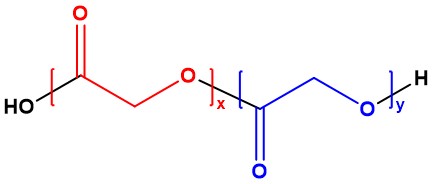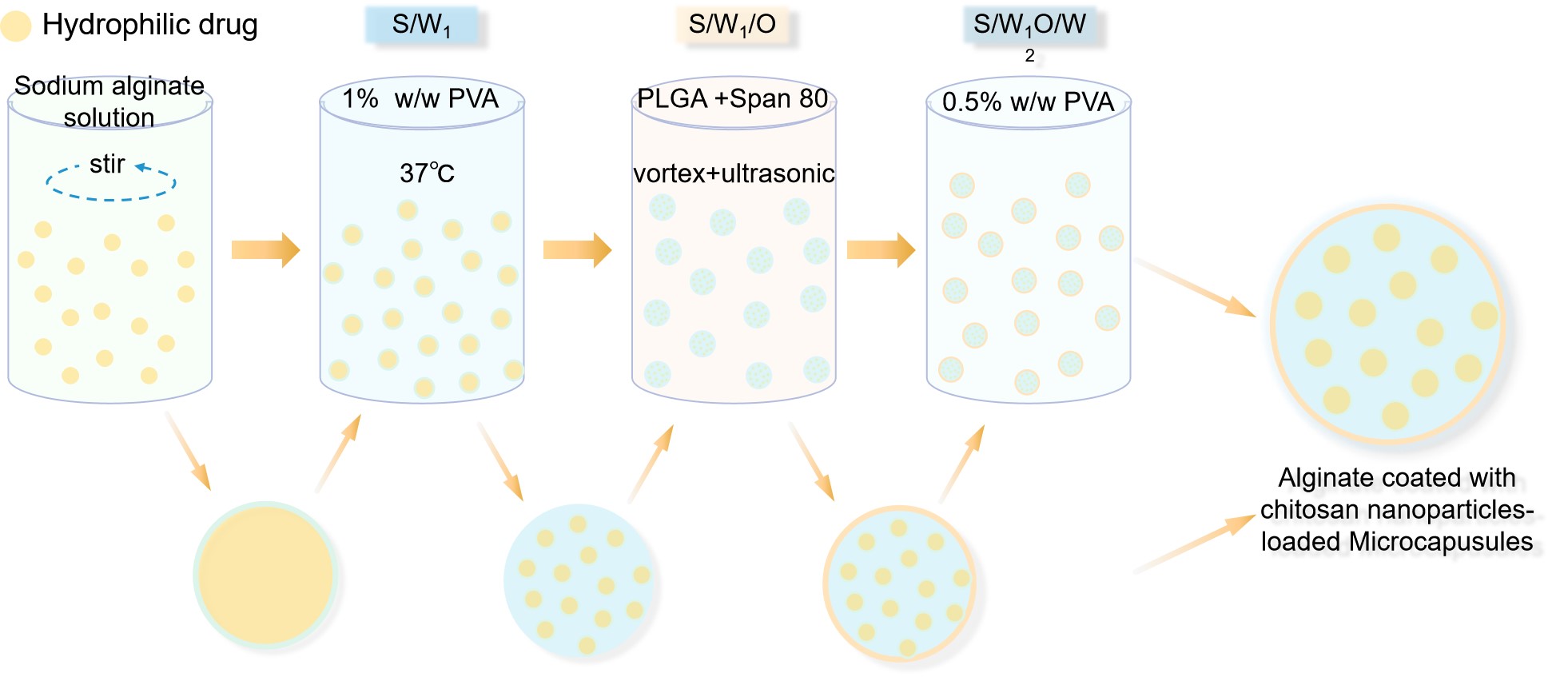PLGA Nanoparticle Annotation
PLGA nanoparticles have a promising future as a safe adjuvant delivery vehicle. Based on our advanced nanoparticle technology platform, Creative Biolabs offers custom PLGA nanoparticle production services to precisely meet our clients' needs.
Introduction of PLGA
Poly lactic-co-glycolic acid (PLGA), also known as poly ethylene-propylene glycol, is a functional polymeric organic compound formed by random polymerization of poly lactic acid (PLA) and poly glycolic acid (PGA). Many excellent properties such as film- and capsule-forming properties, biocompatibility and biodegradability give PLGA the possibility to realize various applications by utilizing a wide range of erosion times and tunable mechanical properties. What's more, having been approved by the Food and Drug Administration (FDA), PLGA is used as a polymer material for surgical sutures, anti-adhesion films and tissue engineering scaffolds, and is widely used in medical engineering, pharmaceuticals and modern industry, making it one of the most attractive polymer material candidates.
Structure of PLGA
PLGA is a copolymer of PLA and PGA, where the D and L forms of PLA are in equal proportions. With the random disorderly binding of polymer chains, polymer PLA can be highly crystalline like PLLA and completely amorphous PDLA, in contrast to PGA which exhibits highly crystalline like due to the absence of methyl side groups. Accordingly, the degradation time and period of PLGA can be adjusted by controlling the PGA content, and thus almost any size and type of PLGA can be prepared to wrap almost any size of molecule.
 Fig.1 Structure of PLGA.
Fig.1 Structure of PLGA.
Properties of PLGA
The properties of PLGA depend on a variety of factors, such as the initial molecular weight, the ratio of PLA to PGA, the aqueous solvent conditions and the size of the device, etc. PLGA can be biodegraded by various common solvents, such as chloride solvents, ethyl acetate, tetrahydrofuran and acetone. The ester bond of PLGA is hydrolyzed to produce non-toxic lactic acid and hydroxyacetic acid, of which the higher the percentage of crystalline PGA, the faster its degradation rate. In addition, the carboxyl groups generated by biodegradation catalyze the further degradation of PLGA. The crystallinity and melting point of PLGA increase with its relative molecular mass, and its glass transition temperature (Tg) is higher than the physiological temperature of 37 °C and has a rigid chain structure.
Applications of PLGA
PLGA nanoparticles are one of the most attractive non-viral vectors with great potential for application. Due to its good biocompatibility and biodegradable properties, PLGA not only serves as a delivery system for controlled release of drugs, peptides and proteins in multiple routes of administration at different time periods, but also protects the contents from adverse factors and enables sustained and regulated release of the contents through strategies of bioconjugation and targeted synthesis, such as protein particle conjugation and oligonucleotides particle conjugation. Moreover, a variety of cleavable linkers and non-cleavable linkers are all available. To achieve controlled degradation of PLGA and controlled release of the drug for the desired application, highly hydrophilic amorphous polymers can be considered for short-term (less than one month) release requirements, while for longer-term release needs, the use of high molecular weight amorphous polymers (less than six months release period) or even highly crystalline polymers (more than six months release period) would be more appropriate.
 Fig.2 Schematic illustration of the alginate coated with chitosan nanoparticles into PLGA microcapsules.
Fig.2 Schematic illustration of the alginate coated with chitosan nanoparticles into PLGA microcapsules.
Creative Biolabs has a long-standing commitment to the development and production of nanoparticle products. We can provide various types of PLGA nanoparticle products to meet your specific requirements. Our dedicated team of strategic and technical advisors are pleased to provide you with the most appropriate nanoparticle research services. Please feel free to contact us for more information.
